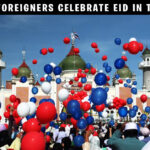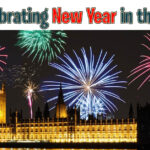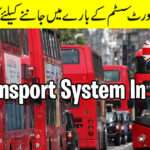Introduction:
Ramadan, the holiest month in Islam, is a time of spiritual reflection, fasting, prayer, and community for Muslims around the world. In the United Kingdom, home to a vibrant and diverse Muslim population, Ramadan takes on a special significance as communities come together to observe this sacred tradition. In this comprehensive article, we delve into the unique experience of Ramadan in the UK, exploring the customs, celebrations, and spiritual significance of this auspicious month.
Understanding the Muslim Community in the UK:
-
Historical Context:
Understanding the Muslim community in the UK begins with recognizing its historical roots. Muslims have been present in the UK for centuries, with early records indicating their presence as far back as the 16th century. Exploring the historical context provides insights into the migration patterns, cultural exchanges, and religious practices that have shaped the Muslim community’s identity over time.
-
Demographic Diversity:
The Muslim community in the UK is incredibly diverse, encompassing a wide range of ethnicities, cultures, and linguistic backgrounds. From South Asian, Middle Eastern, and African origins to converts and descendants of earlier generations of immigrants, Muslims in the UK represent a mosaic of identities and experiences. Understanding this diversity is essential for appreciating the richness and complexity of the Muslim community’s social, cultural, and religious landscape.
-
Socioeconomic Profile:
Examining the socioeconomic profile of the Muslim community sheds light on its various challenges and opportunities. While Muslims in the UK are represented across all strata of society, studies have highlighted disparities in areas such as education, employment, housing, and healthcare. Understanding the socioeconomic factors that impact the Muslim community’s well-being is crucial for addressing systemic inequalities and fostering inclusive development.
-
Cultural Contributions:
Muslims in the UK have made significant contributions to the country’s cultural fabric, enriching its arts, literature, cuisine, and traditions. From architecture and music to fashion and cuisine, Islamic influences permeate various aspects of British culture. Exploring the cultural contributions of the Muslim community highlights its creativity, resilience, and capacity for cross-cultural dialogue and exchange.
-
Religious Identity and Practice:
Islam serves as a central pillar of identity and practice for Muslims in the UK. Mosques, Islamic centers, and community organizations play vital roles in providing spiritual guidance, education, and social support to believers. Understanding the religious beliefs, rituals, and values that underpin the Muslim community’s worldview is essential for fostering interfaith understanding, religious tolerance, and social cohesion in pluralistic societies.
-
Civic Engagement and Advocacy:
Muslims in the UK are actively engaged in civic life, advocating for social justice, equality, and human rights. From grassroots activism and community organizing to political representation and advocacy campaigns, Muslims contribute to shaping public discourse and policy on issues ranging from discrimination and Islamophobia to poverty alleviation and environmental sustainability. Exploring the Muslim community’s civic engagement underscores its commitment to democratic values and active citizenship.
-
Challenges and Resilience:
Despite its rich cultural heritage and contributions to British society, the Muslim community in the UK faces various challenges, including Islamophobia, discrimination, and social exclusion. Navigating these challenges requires resilience, solidarity, and collective action. Understanding the Muslim community’s resilience in the face of adversity provides insights into its capacity for resilience, adaptation, and empowerment in diverse contexts.
By examining these headings, one can gain a holistic understanding of the Muslim community in the UK, encompassing its historical roots, demographic diversity, socioeconomic profile, cultural contributions, religious identity, civic engagement, challenges, and resilience. This nuanced understanding lays the foundation for building inclusive, equitable, and cohesive societies that celebrate diversity and uphold fundamental rights and freedoms for all.
Celebrations During Ramadan:
Ramadan in the UK is marked by a sense of anticipation and excitement as Muslims prepare to embark on a month-long journey of fasting, prayer, and spiritual growth. The pre-dawn meal, known as Suhoor, becomes a cherished ritual as families wake up early to partake in a nourishing meal before beginning their fast at dawn. In bustling cities like London, Birmingham, and Manchester, the streets come alive with the hustle and bustle of Suhoor markets, where vendors offer an array of delicious food items to fuel the faithful for the day ahead.
As the sun sets, Muslims gather for Iftar, the evening meal to break their fast. Communities across the UK host Iftar gatherings, ranging from intimate family dinners to large-scale events organized by mosques and community centers. These gatherings serve not only as opportunities to break bread but also as occasions for fostering unity, solidarity, and goodwill among people of different backgrounds.
-
Preparation and Anticipation:
Leading up to Ramadan, there’s a sense of excitement and preparation among Muslims in the UK. Families stock up on essential food items for Suhoor (pre-dawn meal) and Iftar (breaking of the fast), ensuring they have everything they need for the month ahead. Mosques and community centers also organize special events, lectures, and workshops to spiritually prepare individuals for the upcoming month of fasting and prayer.
-
Suhoor and Sehri Gatherings:
Suhoor, the pre-dawn meal before fasting begins, is an important ritual during Ramadan. In the UK, families wake up before dawn to share a hearty meal together, often consisting of foods that provide sustained energy throughout the day, such as dates, fruits, grains, and protein-rich dishes. Some communities organize communal Suhoor gatherings, where friends and neighbors come together to eat, pray, and support one another before beginning their fasts.
-
Iftar Celebrations:
As the sun sets, Muslims in the UK gather to break their fast with Iftar, a joyous and communal meal shared with family, friends, and neighbors. Iftar gatherings vary in size and scale, ranging from intimate family dinners to large community events hosted by mosques and Islamic organizations. Traditional Iftar foods, including dates, fruits, samosas, and sweets, are served alongside hearty dishes that reflect the diverse culinary traditions of Muslim communities in the UK.
-
Community Iftar Events:
Community Iftar events are a hallmark of Ramadan in the UK, bringing together people from all walks of life to share in the spirit of generosity and hospitality. Mosques, Islamic centers, charities, and community groups organize these events, which often feature free meals, entertainment, and educational activities. Community Iftars not only provide a sense of belonging and solidarity but also promote interfaith dialogue and understanding, welcoming individuals of all faiths and backgrounds to join in the festivities.
-
Taraweeh Prayers:
Taraweeh prayers are special nightly prayers performed during Ramadan, typically held in mosques after the Isha (night) prayer. In the UK, mosques overflow with worshippers during Taraweeh, as individuals come together to recite long portions of the Quran and engage in collective worship. Taraweeh prayers offer a unique opportunity for spiritual reflection, community bonding, and seeking forgiveness during the blessed nights of Ramadan.
-
Laylat al-Qadr Observance:
Laylat al-Qadr, or the Night of Power, is considered the holiest night of Ramadan, commemorating the night when the Quran was first revealed to Prophet Muhammad (peace be upon him). Muslims in the UK observe this night with special prayers, supplications, and acts of worship, seeking blessings and forgiveness. Many mosques hold overnight vigils and spiritual gatherings, inviting worshippers to engage in devotion and reflection as they seek the blessings of Laylat al-Qadr.
-
Eid Preparation:
Towards the end of Ramadan, preparations begin for Eid al-Fitr, the festival that marks the end of fasting. Muslims in the UK engage in festive shopping, buying new clothes, gifts, and decorations to celebrate the joyous occasion. Families clean and decorate their homes, and communities come together to plan Eid prayers, gatherings, and charitable activities to ensure that everyone can participate in the festivities.
These subheadings provide a comprehensive overview of the various celebrations and rituals that characterize Ramadan in the UK, highlighting the sense of community, spirituality, and joy that permeates the month-long observance.
The Significance of Prayers During Ramadan:
Central to the observance of Ramadan are the five daily prayers, known as Salah, which hold profound spiritual significance for Muslims. During Ramadan, these prayers take on added importance as believers seek to deepen their connection with the divine through regular worship and reflection.
-
Salah: The Foundation of Worship:
Salah, or the ritual prayers, are one of the five pillars of Islam and hold a central place in the lives of Muslims. During Ramadan, the importance of Salah is heightened as believers strive to deepen their connection with the divine through regular and fervent worship. Muslims in the UK diligently observe the five daily prayers, including Fajr (dawn), Dhuhr (midday), Asr (afternoon), Maghrib (sunset), and Isha (night), as prescribed by Islamic teachings.
-
Fasting and Prayer: Enhancing Spiritual Reflection:
The act of fasting during Ramadan is closely intertwined with prayer, as Muslims seek to purify their hearts and souls through acts of devotion and worship. Fasting heightens one’s awareness of God’s presence and fosters a sense of humility, gratitude, and mindfulness in prayer. Muslims in the UK use this sacred time to engage in extra prayers, supplications, and Quranic recitations, seeking spiritual growth and enlightenment during the blessed month.
-
Taraweeh Prayers: Communal Worship and Spiritual Renewal:
Taraweeh prayers are special nightly prayers performed during Ramadan, offering an opportunity for Muslims to engage in extended worship and reflection. In the UK, mosques overflow with worshippers during Taraweeh, as individuals come together to recite long portions of the Quran and seek blessings and forgiveness from Allah. Taraweeh prayers foster a sense of community, unity, and spiritual renewal, as believers join in collective worship and supplication.
-
Seeking Laylat al-Qadr: The Night of Power:
Laylat al-Qadr, or the Night of Power, is considered the holiest night of Ramadan, commemorating the night when the Quran was first revealed to Prophet Muhammad (peace be upon him). Muslims in the UK actively seek this blessed night through extra prayers, supplications, and acts of worship, believing that the blessings and rewards of Laylat al-Qadr are manifold. Mosques in the UK hold special programs and vigils during the last ten nights of Ramadan, inviting worshippers to engage in devotion and reflection as they seek the blessings of this auspicious night.
-
Tahajjud: The Night Vigil Prayer:
Tahajjud is a voluntary prayer performed during the night, especially in the last third of the night, outside of the obligatory prayers. During Ramadan, many Muslims in the UK wake up before dawn to perform Tahajjud prayers, seeking closeness to Allah and forgiveness for their sins. This additional act of worship allows believers to deepen their spiritual connection and draw closer to the divine, as they strive to maximize the blessings of Ramadan through prayer and devotion.
-
Community Prayer and Solidarity:
Prayer during Ramadan is not only a personal act of devotion but also a communal experience that fosters unity, solidarity, and brotherhood/sisterhood among believers. In the UK, mosques and Islamic centers serve as hubs of community prayer, where Muslims from diverse backgrounds come together to worship, supplicate, and support one another. The collective nature of Ramadan prayers strengthens the bonds of faith and kinship, reminding believers of their shared commitment to Allah and His guidance.
These subheadings provide a comprehensive overview of the significance of prayers during Ramadan in the UK, emphasizing the spiritual, communal, and transformative aspects of worship during the holy month.
In conclusion, Ramadan in the UK is a time of spiritual renewal, community bonding, and acts of kindness and generosity. As Muslims across the country come together to fast, pray, and reflect, they not only strengthen their faith but also enrich the fabric of British society. From the bustling streets of London to the quaint villages of the countryside, Ramadan serves as a reminder of the values of compassion, empathy, and unity that transcend cultural and religious boundaries. As the crescent moon heralds the beginning of another Ramadan, let us embrace this sacred time with open hearts and minds, seeking to uplift and inspire one another in the spirit of peace and goodwill.
More About Uk: ABOUT UK






